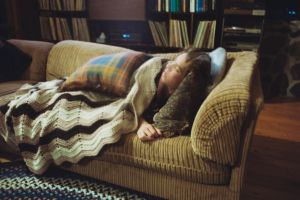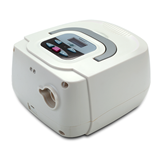Writing in the latest edition of Australian Prescriber, Dr MacKay says sleeping on one’s side or in a more upright position rather than on the back or front may help some snorers.
As a general rule, over-the-counter remedies are not very effective for snoring.
In many cases lifestyle changes can help, particularly where obesity or alcohol are involved. Snoring is strongly associated with obesity and the importance of weight loss is well recognised. Personal trainers and dietitians can help patients with weight problems and other risk factors for heart disease.
Alcohol consumption can make snoring worse, so giving up alcohol or drinking less may help. Other health issues such as smoking, diabetes control, high blood pressure and high cholesterol need to be addressed.
“Continuous positive airway pressure or CPAP remains the most effective treatment for snoring and sleep apnoea”, writes Dr MacKay.
However it is estimated that 30% or more of snorers cannot or will not use CPAP in the long term. They can be offered counselling to help CPAP use, a mandibular advancement splint or surgical airway reconstruction.
Mandibular advancement splints are appliances designed to improve or cure snoring by helping to keep the airway open.


